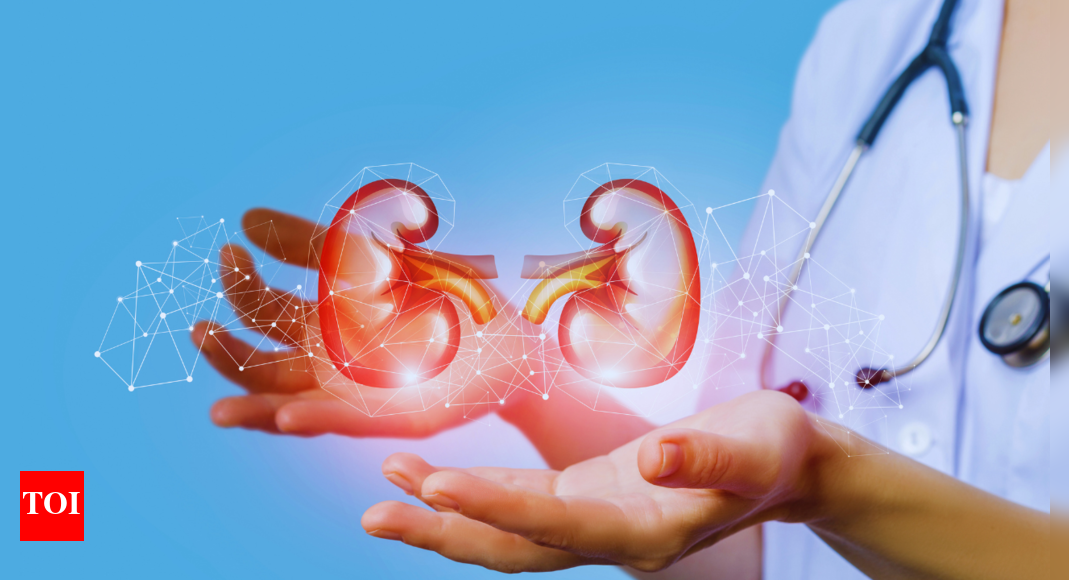
News
September 11, 2025
Can drinking too much water harm your kidneys? The truth
Overhydration, often unnoticed, poses risks similar to dehydration by overburdening the kidneys. Water is essential for life, but drinking too much can put stress on the kidneys. While the kidneys are designed to filter and balance fluids, overhydration can dilute sodium levels in the blood, leading to conditions like hyponatremia.
**Can drinking too much water harm your kidneys? The truth**
We're constantly told to drink more water, and for good reason. Water is essential for nearly every bodily function, from regulating temperature to transporting nutrients. However, like most things in life, moderation is key. While dehydration is widely recognized as a health risk, the dangers of overhydration often fly under the radar. Believe it or not, drinking too much water can actually put a strain on your kidneys and lead to serious health problems.
Our kidneys are remarkable organs, acting as sophisticated filters that maintain the delicate balance of fluids in our bodies. They work tirelessly to remove waste products and excess water from the blood, ensuring our internal environment remains stable. But when we overload our system with excessive amounts of water, we force the kidneys to work overtime.
This overwork can lead to a condition called hyponatremia, which occurs when the sodium levels in your blood become dangerously diluted. Sodium is a crucial electrolyte that helps regulate blood pressure, nerve function, and muscle contractions. When you drink too much water, you essentially flush out this vital mineral, disrupting the delicate balance within your body.
The symptoms of hyponatremia can range from mild to severe. Mild symptoms may include nausea, headache, and confusion. In more severe cases, hyponatremia can lead to muscle weakness, seizures, coma, and even death.
So, how much water is too much? The answer isn't one-size-fits-all. Individual water needs vary depending on factors like activity level, climate, and overall health. A general guideline is to drink when you're thirsty and to pay attention to the color of your urine. Pale yellow urine typically indicates adequate hydration, while dark yellow urine suggests you need to drink more.
While it's crucial to stay hydrated, it's equally important to avoid excessive water consumption. Listen to your body, drink when you're thirsty, and be mindful of the potential risks associated with overhydration. Your kidneys will thank you for it.
We're constantly told to drink more water, and for good reason. Water is essential for nearly every bodily function, from regulating temperature to transporting nutrients. However, like most things in life, moderation is key. While dehydration is widely recognized as a health risk, the dangers of overhydration often fly under the radar. Believe it or not, drinking too much water can actually put a strain on your kidneys and lead to serious health problems.
Our kidneys are remarkable organs, acting as sophisticated filters that maintain the delicate balance of fluids in our bodies. They work tirelessly to remove waste products and excess water from the blood, ensuring our internal environment remains stable. But when we overload our system with excessive amounts of water, we force the kidneys to work overtime.
This overwork can lead to a condition called hyponatremia, which occurs when the sodium levels in your blood become dangerously diluted. Sodium is a crucial electrolyte that helps regulate blood pressure, nerve function, and muscle contractions. When you drink too much water, you essentially flush out this vital mineral, disrupting the delicate balance within your body.
The symptoms of hyponatremia can range from mild to severe. Mild symptoms may include nausea, headache, and confusion. In more severe cases, hyponatremia can lead to muscle weakness, seizures, coma, and even death.
So, how much water is too much? The answer isn't one-size-fits-all. Individual water needs vary depending on factors like activity level, climate, and overall health. A general guideline is to drink when you're thirsty and to pay attention to the color of your urine. Pale yellow urine typically indicates adequate hydration, while dark yellow urine suggests you need to drink more.
While it's crucial to stay hydrated, it's equally important to avoid excessive water consumption. Listen to your body, drink when you're thirsty, and be mindful of the potential risks associated with overhydration. Your kidneys will thank you for it.
Category:
Entertainment